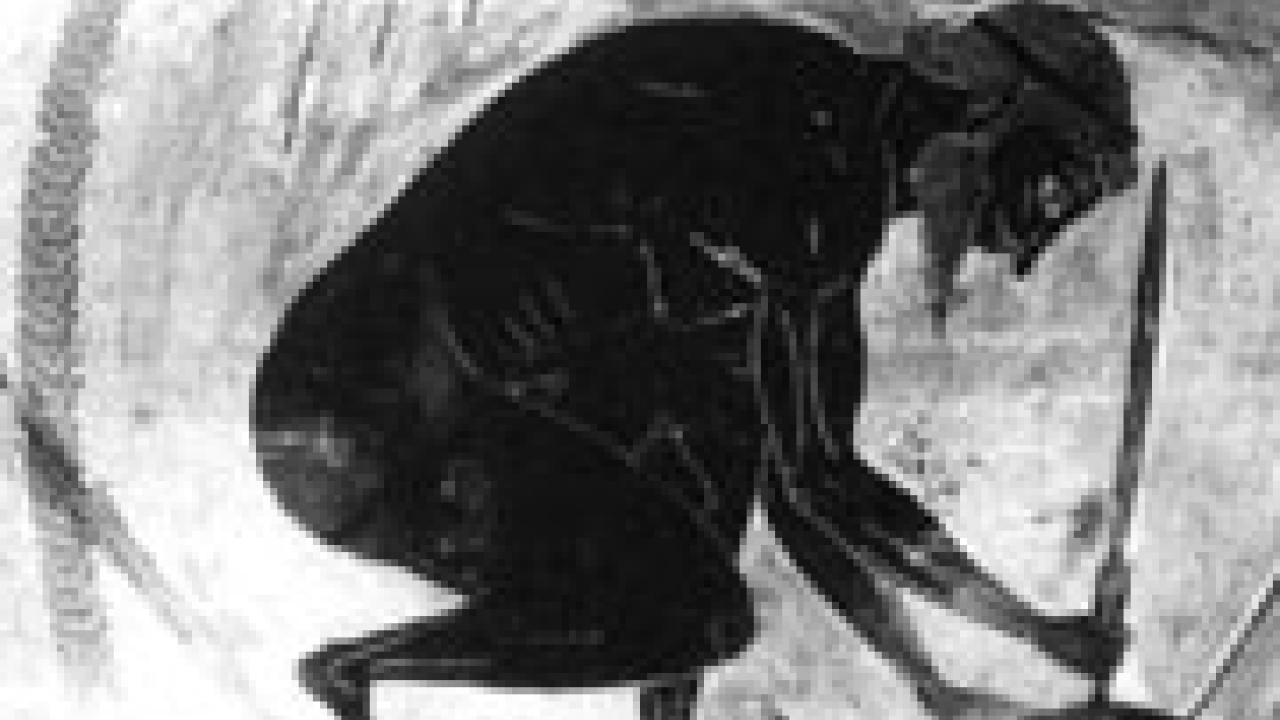When a student recently skipped Seth Schein's class on Sophoclean drama for the immigration protest in Sacramento, the classics professor believed he had achieved "that teachable moment."
Not only was the student so impressed by Schein's class that he decided to name his new puppy "Sophocles," but he said that reading the plays in class" inspired his decision to be involved in the demonstrations.
It is just this sort of ephiphany that Schein hopes occurs May 19 and 20 when he hosts a conference on Sophoclean Drama and its Continuing Cultural Impact. The professor believes it is the only conference to focus specifically on how Sophocles has had a continuing cultural impact in the modern world.
After all, Schein said, inspiring students with ancient wisdom is what "many of us teach for." In the case of the student who got involved in the current immigration protesting, Schein mentioned it to several Comparative Literature colleagues and graduate students. They all had the identical response — "yes."
Schein, who has taught classical literature in English translation and the original Greek and Latin for nearly 40 years, has hopes for similar epiphanies for his 85 other students at the Sophocles conference. With the brainpower assembling there, an opportunity for further enlightenment exists.
The event is drawing some of Europe's and North America's most renowned scholars who study Sophocles and the modern and contemporary performances and adaptations of his plays.
Schein has instructed his students to attend part of the conference and write papers based on what they hear and learn.
Speakers will deliver presentations on a variety of issues, such as "Staging Pain and Injury in Sophocles," a main theme in his plays; a critique of early 20th-century writers, including Virginia Woolf, who romanticized the ancient Greeks as primitives; insights into how Sophocles' plays have been re-imagined into modern opera and a gospel church service; and an examination of what the female character Antigone symbolizes for male prisoners, in a South African play, The Island. (For details, see page 4).
Peter Lichtenfels, who is directing The Island at UC Davis from May 17 to 21, said he admires the grandeur in Sophocles' plays, such as Oedipus at Colonus and Ajax. But Lichtenfels, a theatre and dance professor who was one of Great Britain's major directors for three decades until he came to UC Davis a few years ago, said he also finds great truths in Euripides' more "down-to-earth" plays, such as The Trojan Women.
Ancient literature has shown remarkable resilience in today's world, Schein said. For example, "reception studies," which examine how literature is interpreted and understood in later times and places, is a hot topic in classical studies. This makes the conference timely and relevant, he added.
"When European powers, especially Britain and France, established colonies in Africa and Asia, some colonial schools taught a classical curriculum," Schein said. "Playwrights from these countries, especially after independence in the '50s, '60s, and '70s, had absorbed classical literature and used it, especially Greek, as a new means of making social commentary and political interventions."
Schein finds it ironic that while classical literature has lost ground in Great Britain and France — colonial powers that spread Western culture to the far corners of the earth — writers in their former colonies are embracing the classics in this way.
In his 40 years as a scholar, Schein has taught at Queens College; City University of New York Graduate School; State University of New York, Purchase; Columbia University and UC Santa Cruz. Since 1992, he has been an advocate for the classics in the UC Davis Comparative Literature Program. He teaches one Greek course a year in the Classics Program.
Now it is Schein's turn, as a scholar, to host an academic conference with worldwide participation to investigate Sophoclean drama, and its relevance and meaning now and in the 20th century.
The Sophoclean Drama and its Continuing Cultural Impact conference is supported by funding from the UC Humanities Research Institute, the Davis Humanities Institute, and other campus departments and programs.For details, see classics.ucdavis.edu/content/Sophoclean.
Media Resources
Susanne Rockwell, Web and new media editor, (530) 752-2542, sgrockwell@ucdavis.edu
